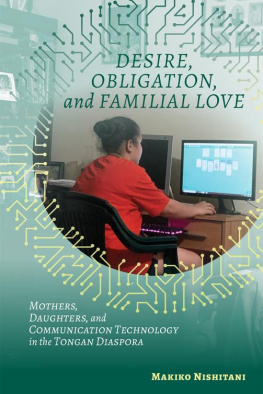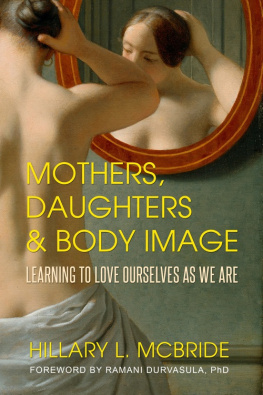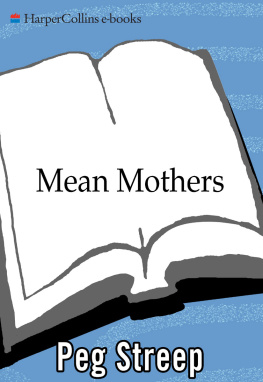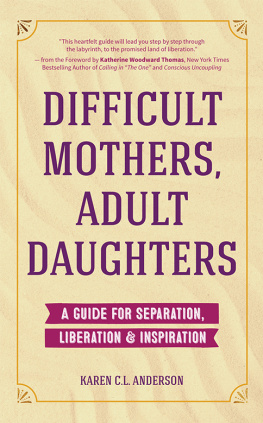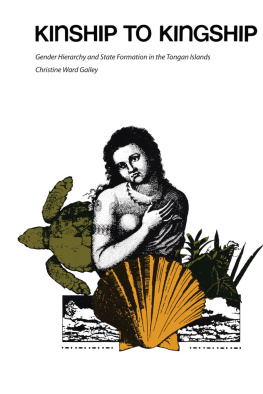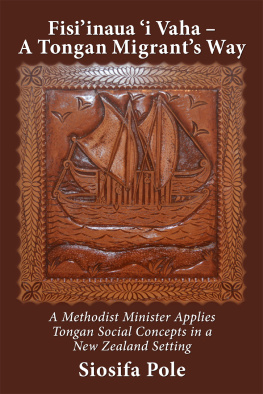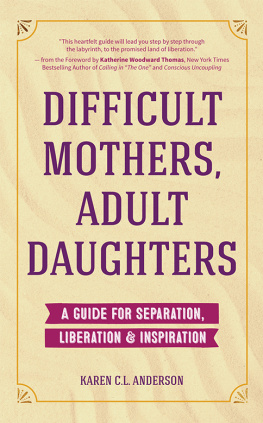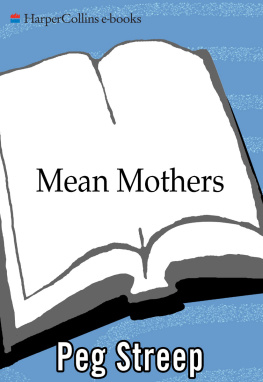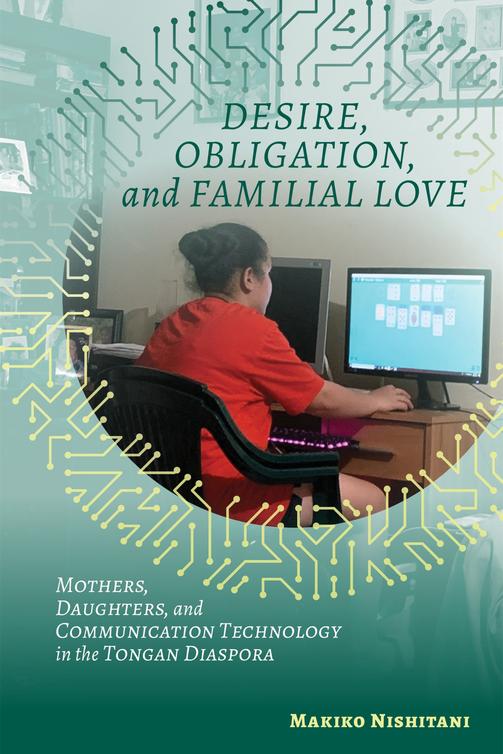Makiko Nishitani - Desire, Obligation, and Familial Love: Mothers, Daughters, and Communication Technology in the Tongan Diaspora
Here you can read online Makiko Nishitani - Desire, Obligation, and Familial Love: Mothers, Daughters, and Communication Technology in the Tongan Diaspora full text of the book (entire story) in english for free. Download pdf and epub, get meaning, cover and reviews about this ebook. year: 2020, publisher: University of Hawaii Press, genre: Politics. Description of the work, (preface) as well as reviews are available. Best literature library LitArk.com created for fans of good reading and offers a wide selection of genres:
Romance novel
Science fiction
Adventure
Detective
Science
History
Home and family
Prose
Art
Politics
Computer
Non-fiction
Religion
Business
Children
Humor
Choose a favorite category and find really read worthwhile books. Enjoy immersion in the world of imagination, feel the emotions of the characters or learn something new for yourself, make an fascinating discovery.
- Book:Desire, Obligation, and Familial Love: Mothers, Daughters, and Communication Technology in the Tongan Diaspora
- Author:
- Publisher:University of Hawaii Press
- Genre:
- Year:2020
- Rating:4 / 5
- Favourites:Add to favourites
- Your mark:
Desire, Obligation, and Familial Love: Mothers, Daughters, and Communication Technology in the Tongan Diaspora: summary, description and annotation
We offer to read an annotation, description, summary or preface (depends on what the author of the book "Desire, Obligation, and Familial Love: Mothers, Daughters, and Communication Technology in the Tongan Diaspora" wrote himself). If you haven't found the necessary information about the book — write in the comments, we will try to find it.
Based on long-term ethnographic fieldwork among Tongan migrant mothers and adult daughters in Australia, anthropologist Makiko Nishitani provides a unique account of how gifts, money, and information flow along the connections of kin and kin-like relationships. Desire, Obligation, and Familial Love challenges the conventional discourse on migration, which typically characterizes intergenerational changes from tradition to modernity, from relational to individual, and from obligation to autonomy and freedom. Rather, through an intimate examination of Tongan womens everyday engagement with kinship relationships, Nishitani highlights how migrant women and their daughters born outside Tonga together create a field of relationships with kin and kin-like people, and navigate between individualistic, personal desires and familial duties and obligations. Their negotiations are not limited to a local frame of reference, but encompass vast distances, including relationships with relatives in places like Australia, New Zealand, the United States, and the home island nation. Tongan women manage these relationships across diverse modes of communication: face-to-face interactions in homes and at church, lengthy telephone conversations on fixed phone lines in kitchens, and interactions on social media accessed on living room computers shared between neighboring households.
Relationships between migrant mothers and second-generation daughters are suffused with warmth and empathy, as well as tensions and misunderstandings. Nishitanis work demonstrates the critical contemporary relevance of classical anthropological kinship studies and gift theories as tools that can help us to understand transnationalism in the digital age. Through reflections on feminist geography, social theory of technology, Bourdieus field theory, and media studies, Nishitani makes a convincing call for anthropologists to use relationships rather than geographical places as a site of anthropological fieldwork in order to understand the sociality of diasporic people.
Filled with rich, intimate portrayals of diasporic womens everyday lives and the everyday politics of familial relationships, Desire, Obligation, and Familial Love will appeal to students and scholars of the anthropology of migration, of communication technologies and social media, and of gender and familial relationships, as well as to those interested in fieldwork methodology, transnational and migration studies, and Pacific studies.
Makiko Nishitani: author's other books
Who wrote Desire, Obligation, and Familial Love: Mothers, Daughters, and Communication Technology in the Tongan Diaspora? Find out the surname, the name of the author of the book and a list of all author's works by series.

